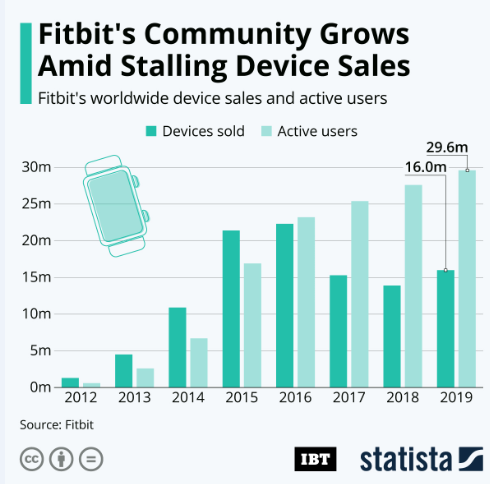Infographic: Fitbit's Active User Base Grows Amid Stalling Device Sales

After concluding its preliminary review of Google’s $2.1 billion bid for wearables maker Fitbit, the European Commission has opened an in-depth antitrust investigation into the proposed deal. Despite Google’s assurance that it wouldn’t use Fitbit’s user data to target ads, the EU’s competition watchdog fears that access to Fitbit’s "vast amount of data" could "further entrench Google’s market position in the online advertising markets."
In the Commission's official announcement, Margrethe Vestager, executive vice-president responsible for competition policy, said: "The use of wearable devices by European consumers is expected to grow significantly in the coming years. This will go hand in hand with an exponential growth of data generated through these devices. This data provides key insights about the life and the health situation of the users of these devices. Our investigation aims to ensure that control by Google over data collected through wearable devices as a result of the transaction does not distort competition."
While the Commission’s investigation will focus on the data aspect of the proposed acquisition, Google repeatedly stressed that it is eyeing Fitbit for its hardware rather than its user data. With Motorola, HTC and Nest, Google has a history of making acquisitions to jumpstart its own hardware ambitions. The same could be true for Fitbit, which would give the search giant immediate access to the growing wearables market.
As the following chart shows, Fitbit’s device sales have stagnated in recent years, as the company saw itself squeezed between competition from Apple in the high-end smartwatch market and several Chinese manufacturers in the low-price segment of the wearables market. Despite that sales slowdown, Fitbit has grown a community of 30 million active users over the past decade, many of whom have expressed concerns about the use of their data in case the acquisition is completed.




















